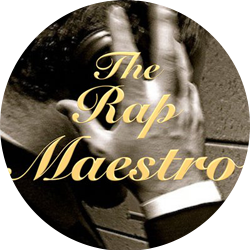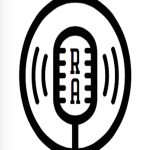We all know Ice Cube. The king, the legend of South Central. I won’t go into all the details of Ice Cube’s persona and relevance, as I’m sure you’re already well aware of his intensity as both a rapper and a person. In my opinion, that’s what made this song stand out so much: it was one of his only really laid-back tracks (he even acknowledges this at the end with the outro). But it’s more than the subject-matter and production that makes this track feel so smooth. There’s a two main things I noticed that made this particular track sound so silky-smooth: Ice Cube’s rhythmic choices and his disregard of bar lines.
This isn’t a particularly fast-paced song; at an cool ~80 BPM (beats per minute), the song chugs along nicely and gives Ice Cube plenty of time to stretch his lyrical chops and fit in as many syllables as he wants. However, he doesn’t take advantage of the slow tempo to up the complexity. Ice Cube takes his time detailing the events of his day and doesn’t spend much time trying to be lyrically complex. And while using simple end-of-bar rhymes, while the most common way to rap at the time, definitely contributed to the overall feel of contentment and easygoing-ness that Ice Cube was looking for, that’s not necessarily what I mean by lyrical complexity. Notice how the syllables of his words fit into the beat; nothing ever sounds too rushed, everything feels nice and in place. Notice the ending syllables on many of the lines and the beats they land on: “thank god”, “no smog”, “no hog”. Those, and others throughout the song, land on 1/8th note beats. The 1/8th note is a fundamental rhythm in music, especially music in 4/4 time (as Martin has mentioned before, 4/4 is the time signature of almost all hip hop songs and a good majority of western songs from all genres). Laying lines and words on that rhythm exactly, as Ice Cube does here, makes the words sound perfectly in place. You can nod your head to the beat and the words line up with your nod better than if he rapped, say, a triplet flow (like Migos). However, this isn’t the only thing that makes this song sound so smooth.
One of the coolest things Ice Cube does in this song is disregard bar lines. What I mean by that is at the end of four beats, rappers generally conclude their ideas. However, Ice Cube not only finishes some of his ideas after the last beat of a bar, he’s entirely conscious he’s doing it. In some cases he even extends a word on the fourth beat so that the final word of the sentence can land on the first beat of the next bar. For example, listen to how he says “I can make that ass drop”. He could’ve finished with “drop” on the fourth beat of that bar but he intentionally elongates “ass” so that i takes up the entire fourth beat and drops the word “drop” on the first beat of the next bar. He does this on other songs too, however the tempos are usually much faster and thus it’s harder to catch.
It’s ironic that this song is Ice Cube’s most-played track on Spotify when it doesn’t come remotely close to what he usually sounds like. However, his writing, delivery and production all contribute to the feeling he was trying to elicit: a chill, idyllic day in South Central, L.A.
As for Eazy-E’s “Boyz-N-The-Hood”? Man, this is a CLASSIC. It contains one of the most iconic opening lines of all time. The single that launched Eazy-E’s career! I love his deadpan delivery, his slightly off-rhythm rapping and even the beat (though the beeping melody in the production is slightly annoying IMO). Ironically, I consider this song to be incredibly laid-back too (even though the subject matter would say otherwise). Eazy-E’s flow sounds disconnected and detached from the subject matter of his lines, which lends itself to being interpreted as chill. He doesn’t really care about anything that happened in the narrative he’s rapping, which includes murder, assault, sexual encounters and prison riots (although this may have to do more with the fact that a) he didn’t write it, Ice Cube did and b) it was his first time rapping ever). But for all the lack of passion Eazy-E put into this song, it still skyrocketed him to hip hop prominence. What were people resonating with?
For starters it resonated with the gangster lifestyle that west-coast rappers were rapping about at the time of its release. Ice Cube and Ice-T were running the gangster rap game in the 80s, and Eazy-E would soon join this roster as one of the hardest street rappers in L.A history (which in itself is ironic considering the only illegal thing Eazy-E had ever done was sell his incarcerated uncle’s cocaine and even then no one ever saw him do this). Eazy’s dope dealer/thug persona is largely artificial, however his gangsta songs resonated with the people of Compton. I posit that one of the reasons this song in particular did so well, especially around Compton, is Eazy’s deadpan delivery. The detachment he appears to feel from the crimes and activities he raps about lines up with how many gangsters describe their feelings surrounding what they do (I watch a LOT of gang/Vice documentaries haha). In that way, Eazy’s passionless delivery almost sounds more believable than Ice Cube yelling aggressively into the microphone.
Eazy’s persona as a mega-thug and dopeman was one of the driving forces behind his explosive popularity and made him stand out from much of the N.W.A pack. Dr. Dre was the beats man, Ice Cube was the mad dog but Eazy-E was the gangster. And when Eazy-E came on the scene with this gangster’s anthem, a theme that all boyz in the hood could relate to and resonate with, it solidified his presence as a real O.G. In terms of lyricism and flow, there isn’t too much to say on it. I always feel weird analyzing the lyrical complexness of old-school hip hop because, in comparison to today’s music, it just isn’t there. However, we have to give props where props are due: no one had ever done anything like what they were doing before! A violent narrative like the one Eazy-E rapped had never really been attempted before that era (truth be told, Ice-T and Scholly D really started the gangsta rap movement, especially with the song “6 in the Mornin”). At the very least, Eazy-E’s skyrocket to fame elevated gangsta rap to a new height, and this song became one of its biggest anthems.
—by Nigel Telman


 Join the weekly RapAnalysis newsletter at
Join the weekly RapAnalysis newsletter at